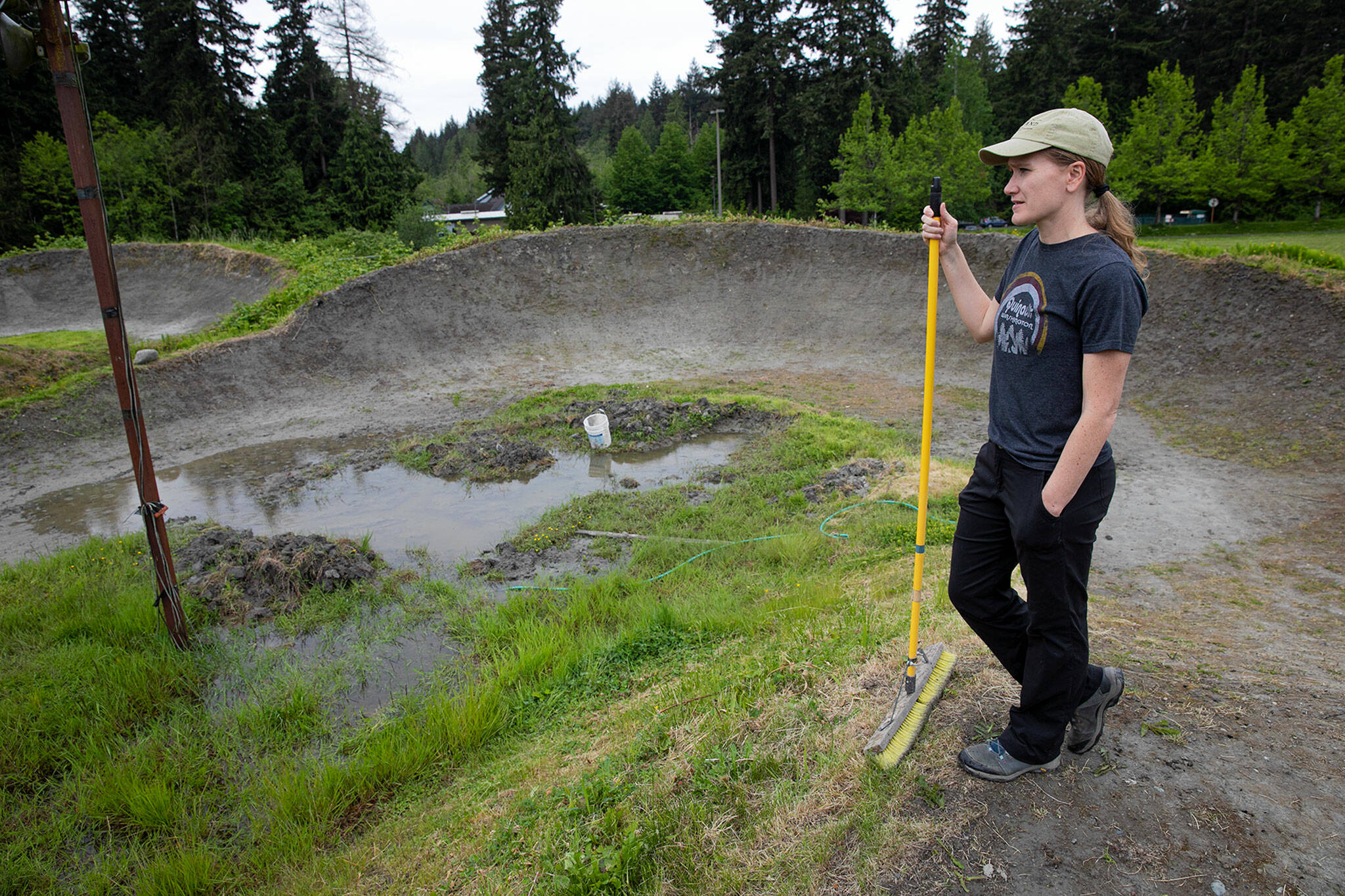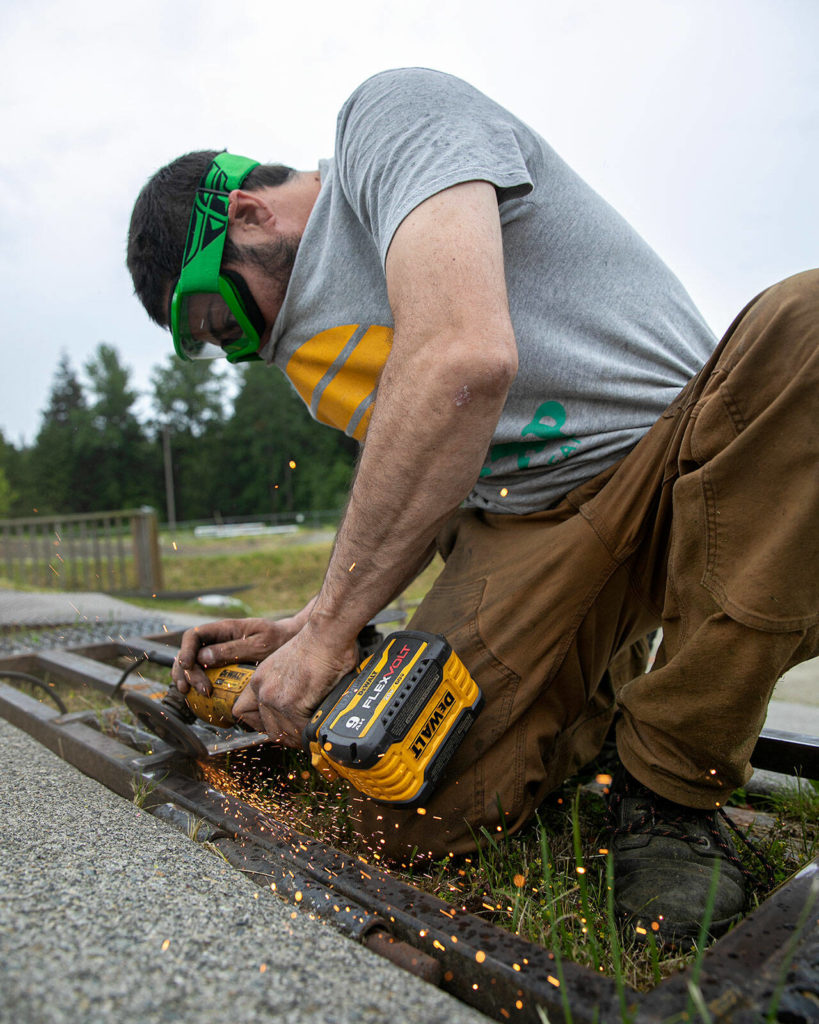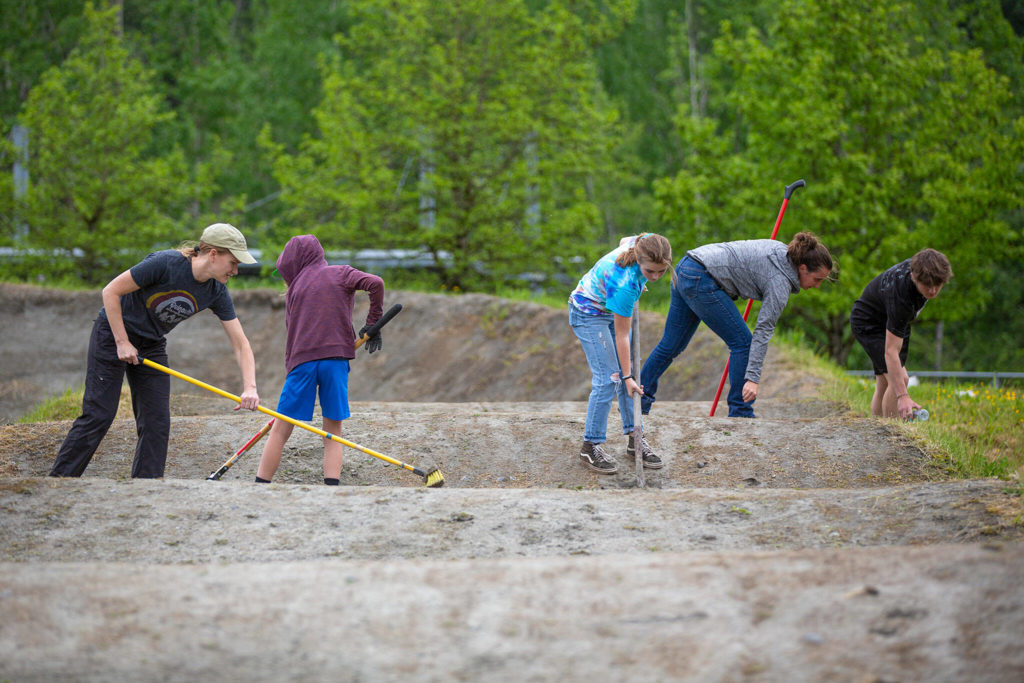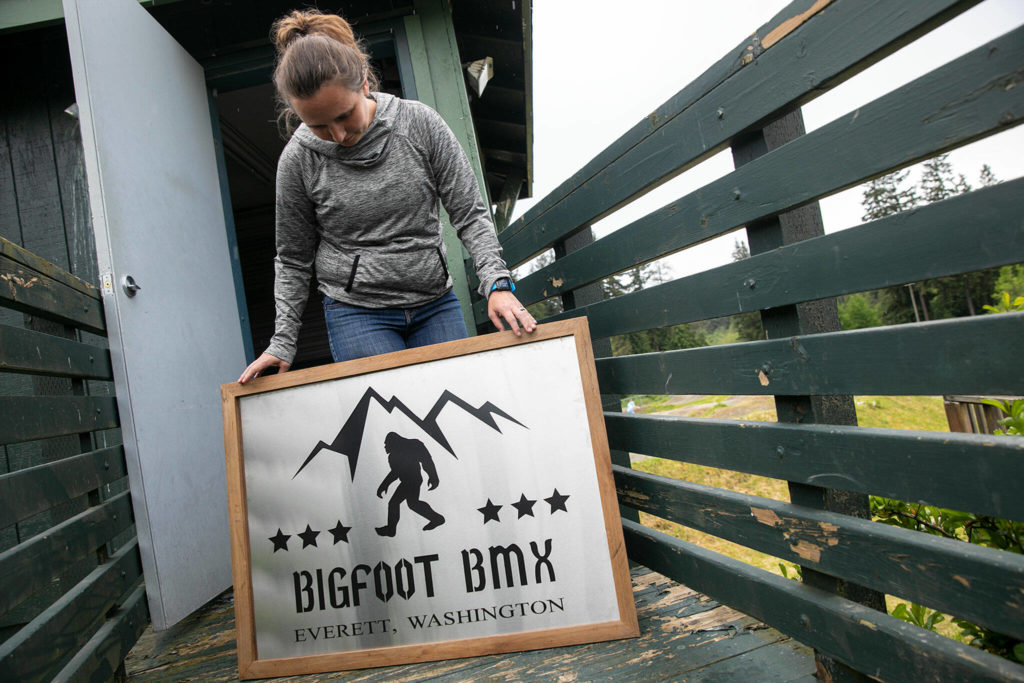EVERETT — An unusually rainy spring made for lots of work at McCollum Pioneer Park’s BMX track to get it ready for the racing season that kicks off Sunday, weather permitting.
Around since 1996, the track is now the responsibility of Bigfoot BMX, which took over operations in 2021 through a request for proposal process by Snohomish County Parks.
The non-profit group of volunteers spent weeks pulling weeds and making sure the dirt track is in shape for competitions between June and October.
“It was under water up until two weeks ago,” track operator and Bigfoot BMX President Marlena Berkheiser said. “It’s not a huge track, but it’s nostalgic for some people.”
She’s the matriarch of a family of BMX riders, but she wasn’t always eager to stomp the pedals. Not long ago Berkheiser was a “nervous momma and terrible spectator” who fretted over her children’s safety. Then she tried it and realized how skillful her three children and husband were to navigate a course sometimes elbow-to-elbow with other racers.
“Once I started to ride I had so much more confidence in their ability,” Berkheiser said.
Now family vacations are tied to BMX races and tracks. They’ve flown their bikes and gear to Las Vegas and Phoenix and taken road trips planned around events and courses.
McCollum Park’s track near Everett, called Bigfoot BMX, is the only one in Snohomish County sanctioned by USA BMX. In total there are 11 in the state, with the next-nearest courses in Mount Vernon and SeaTac.
Bigfoot BMX members, their families and supporters helped prepare the Everett track during a major work party May 23. That kind of barn-raising effort fits with USA BMX’s pillars of family, active fun and community support, new track development director Justin Travis said.
“They’re taking all the weeds off, they’re raking it, they’re getting the surface ready so it’s dirt,” Travis said.
Since it was already built, the Everett track didn’t require the same upfront costs as other tracks USA BMX helps develop. But it still requires 40 to 60 hours per week for maintenance and operations, Travis said.
It’s worth it to see children gain confidence on their bikes and the sport’s popularity grow, he said.
A recent report from the Sports and Fitness Industry Association, a trade group, found BMX participation has increased 4.5% since 2016. It estimated over 3,861,000 people 6 and up who ride a BMX bike. The number fell slightly from 2020, but was still a 5.8% jump over two years.
“A lot of that was people outside who couldn’t participate in team sports” during the pandemic, Travis said.
But it hasn’t just been a fad, with equipment collecting dust in the garage. USA BMX’s membership, which costs $60 annually and grants access to tracks across the country, also grew.
Most tracks make money from entry fees and concessions with an average net positive of $40,000, Travis said. Usually that goes back into the track for capital improvements, a rainy day fund, or contracting for some maintenance. New programs generally don’t see that kind of money for a few years.
For now, Bigfoot’s leaders are gearing up for the season’s start. Signups are 9:30 to 10:30 a.m. Sunday, and races are free to watch. Spectators should bring their own chairs, and maybe an umbrella.
Ben Watanabe: 425-339-3037; bwatanabe@heraldnet.com; Twitter: @benwatanabe.
Talk to us
> Give us your news tips.
> Send us a letter to the editor.
> More Herald contact information.




























